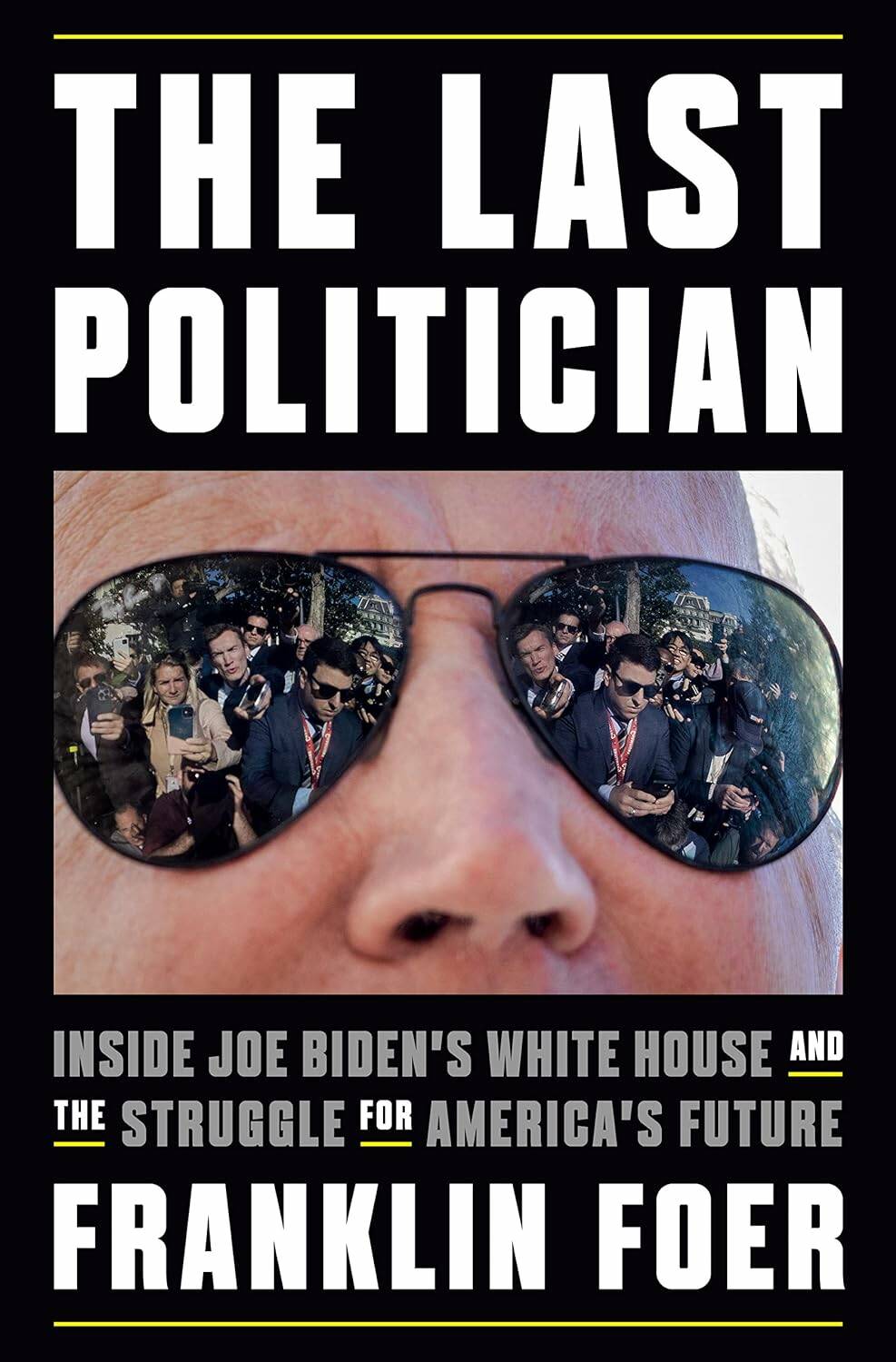Pragmatic POTUS
Biden’s first two years show 46th U.S. president to be a self-effacing consensus builder
Advertisement
Read this article for free:
or
Already have an account? Log in here »
To continue reading, please subscribe:
Monthly Digital Subscription
$0 for the first 4 weeks*
- Enjoy unlimited reading on winnipegfreepress.com
- Read the E-Edition, our digital replica newspaper
- Access News Break, our award-winning app
- Play interactive puzzles
*No charge for 4 weeks then price increases to the regular rate of $19.00 plus GST every four weeks. Offer available to new and qualified returning subscribers only. Cancel any time.
Monthly Digital Subscription
$4.75/week*
- Enjoy unlimited reading on winnipegfreepress.com
- Read the E-Edition, our digital replica newspaper
- Access News Break, our award-winning app
- Play interactive puzzles
*Billed as $19 plus GST every four weeks. Cancel any time.
To continue reading, please subscribe:
Add Free Press access to your Brandon Sun subscription for only an additional
$1 for the first 4 weeks*
*Your next subscription payment will increase by $1.00 and you will be charged $16.99 plus GST for four weeks. After four weeks, your payment will increase to $23.99 plus GST every four weeks.
Read unlimited articles for free today:
or
Already have an account? Log in here »
Hey there, time traveller!
This article was published 02/12/2023 (699 days ago), so information in it may no longer be current.
Franklin Foer, a staff writer for the Atlantic, thinks that being a politician is an unloved, and in some ways, unlovable profession. When he began writing a book about the first two years of Joe Biden’s presidency, he considered Biden to be just a glad-handing old hack.
After two years of observation, he changed his mind. Biden was, in fact, a shrewd, self-effacing consensus builder, an honourable man who will be remembered as the old hack who could.
Biden’s inauguration took place at the Capitol a bare two weeks after it had been stormed by a mob attempting to overturn his election. COVID was raging. Empty of the traditional crowds, the National Mall had been filled with two hundred thousand flags. Armoured cars and soldiers patrolled the perimeter.
Saul Loeb / The Associated Press files
Since being sworn into office in January 2021, U.S. President Joe Biden’s deal-making skills have been needed with politicians on both sides of the aisle.
The outgoing Trump administration had refused to share even the most basic details that would assist Biden’s team to prepare for the tasks ahead of it. They had refused to brief the new administration on everything from the COVID vaccine plans to trade negotiations with China. Nevertheless, within hours of his inaugural address, Biden was in the Oval Office issuing executive orders that would overturn the worst of Trump’s immigration policies, mandate mask use, plan for reopening schools, cancel the Keystone XL pipeline and extend moratoriums on evictions and the collection of student debt.
With 50 Democrats elected to the Senate and the vice president having a casting vote, Biden had a bare majority, but enough to pass his ambitious climate change and social policy legislative program. Foer expertly guides us through the murky Byzantine rules and procedures of the Senate to explain how Biden’s deal-making skills were ultimately needed — not against his Republican opponents, but against two members of his own party.
Peculiarly, Foer describes Joe Manchin and Kyrsten Sinema as moderate Democrats. In any other western democracy, they would be firmly in right-wing parties. In a book whose subtitle includes the Struggle for America’s Future, Foer has surprisingly little to say about the power corporate money holds over American politics. He does note that Manchin’s support came from the fossil fuel industry, whereas Sinema’s came from the financial sector. Without their votes, Biden’s landmark legislative program would fail — so they got crucial concessions.
The resulting legislation, the Inflation Reduction Act (which is not primarily about inflation — see murky Byzantine rules above), had its social programs weakened, but Foer believes it will underpin a historic shift away from fossil fuels in America by providing tax credits and subsidies.
The Trump administration had negotiated a deal with the Taliban that American troops would begin withdrawing from Afghanistan in May 2021. It was up to Biden to fulfill that agreement. He had no problem with it, having always believed that nation building in Afghanistan was beyond America’s capability. Getting out of Afghanistan was now the priority, not the welfare of the Afghan people.
The United States had made elaborate plans for evacuating Afghan civilians who were in danger because of their collaboration. Those plans were made on the assumption that the Afghan government and army would easily hold off the Taliban forces. Instead, the Taliban were in control of Kabul before any refugees could be processed. Pictures of desperate Afghans falling from an American transport plane would haunt Biden’s presidency.

The Last Politician
Other challenges of Biden’s first two years included COVID, the 2021 Israel-Gaza crisis, the Russian invasion of Ukraine and the Supreme Court overturning Roe v. Wade. Foer’s judgment is that Biden’s legislative record is impressive and, during the midterms, he helped avert the disaster of authoritarianism.
It is all the more depressing then that, at the time of writing this review, his approval ratings are below 40 per cent.
Winnipegger John K.Collins thinks democracy in America has become one dollar, one vote.

